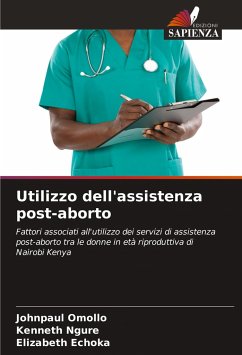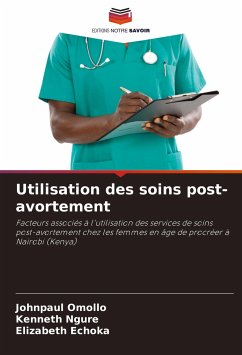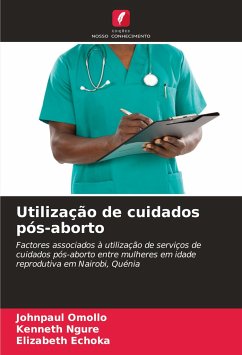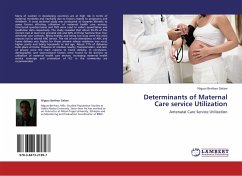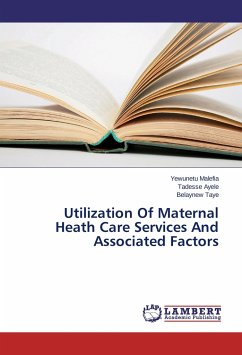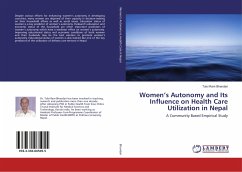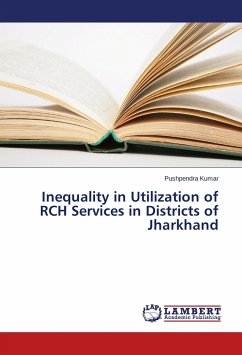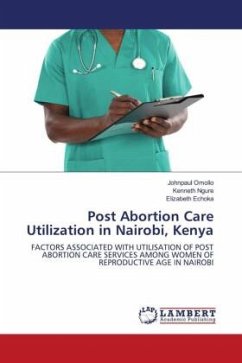
Post Abortion Care Utilization in Nairobi, Kenya
FACTORS ASSOCIATED WITH UTILISATION OF POST ABORTION CARE SERVICES AMONG WOMEN OF REPRODUCTIVE AGE IN NAIROBI
Versandkostenfrei!
Versandfertig in 6-10 Tagen
45,99 €
inkl. MwSt.

PAYBACK Punkte
23 °P sammeln!
Abortion complications are a major contributing factor to maternal mortality, especially in Africa. 31% of maternal deaths in Nairobi are attributed to abortions complications. While Post abortion Care (PAC) is a proven approach in addressing mortality and burden of abortion complications, determinants of use among women who need the service, PAC health seeking behavior's, the health systems capacity to provide PAC and experiences of women and providers on PAC is not well documented. Health providers training and a supportive system in the provision of a comprehensive PAC effectively improves ...
Abortion complications are a major contributing factor to maternal mortality, especially in Africa. 31% of maternal deaths in Nairobi are attributed to abortions complications. While Post abortion Care (PAC) is a proven approach in addressing mortality and burden of abortion complications, determinants of use among women who need the service, PAC health seeking behavior's, the health systems capacity to provide PAC and experiences of women and providers on PAC is not well documented. Health providers training and a supportive system in the provision of a comprehensive PAC effectively improves women's access to PAC services. Perceived patient centeredness, communication and autonomy received while seeking PAC services have shown to influence by a large extent utilization of PAC services. There is need to better understand what drives PAC services use, women PAC seeking behavior's in order to contribute to reducing maternal mortality and morbidity. If not addressed, complications from abortion, including from unsafe abortion will continue to claim more lives, a huge economic burden and put a strain on already stretched-out health care system. This forms the basis of this study.





